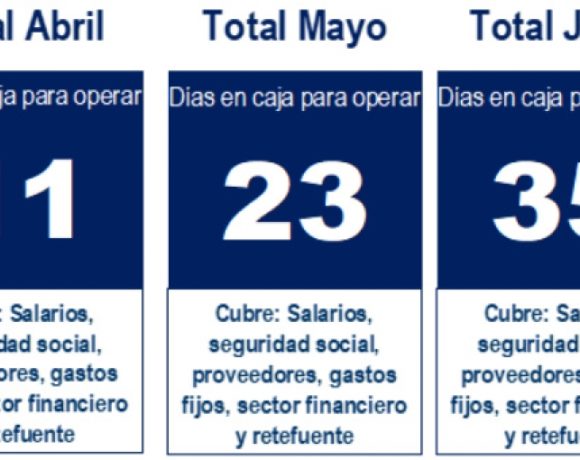IMF Sees 2.7% GDP Growth in Colombia This Year

The International Monetary Fund (IMF) on April 30 announced that it foresees 2.7% growth in Colombia’s gross domestic product (GDP) this year.
In its latest annual “executive board” report (see: http://www.imf.org/en/News/Articles/2018/04/30/pr18154-imf-executive-board-concludes-2018-article-iv-consultation-with-colombia?cid=em-COM-123-36986), IMF found that during the 2017 calendar year, “adequate policy management brought Colombia near completion of its adjustment to large external shocks while further advancing inclusive growth.”
However, “economic growth moderated as private investment and consumption weakened in line with lower national income. Some delays in the infrastructure [development] agenda also contributed to the decline in private investment.”
On the other hand, “fiscal consolidation continued, guided by the fiscal rule and contributed to the narrowing of the current account deficit which was also buttressed by some recovery in oil and non-oil exports,” IMF found.
“Despite the growth moderation, social indicators improved with both poverty and income inequality decreasing in 2017.
“The current-account deficit declined to 3.4% of GDP and continued to be financed by FDI [foreign direct investment] to a large extent. Portfolio inflows moderated somewhat but remained ample with further increases in foreign participation in the local government debt market,” the organization added.
“Colombia’s outlook is favorable as continued efforts to advance the structural reforms will foster economic diversification and productivity growth. Economic growth is expected to rebound strongly in 2018 and further over the medium-term, led by strengthening investment and exports.
“The combined impact of the structural tax reform, a brighter outlook for oil prices and the authorities’ 4G [fourth-generation highway construction] infrastructure agenda will underpin investment while reducing Colombia’s relatively large infrastructure gap.
“Continued efforts to reduce trade barriers and some recovery in global growth will help sustain strong export growth. The implementation of the peace agreement will promote regional development and reduce inequality,” IMF’s report added.
On the other hand, “the economy remains vulnerable to uncertainties from a sudden tightening of global financial conditions and escalation of trade or geopolitical tensions.”
In addition, “placing public debt on a declining path is an appropriate fiscal target which would also leave room to fine-tune the consolidation pace as guided by the fiscal rule.
“IMF directors encouraged [Colombian] authorities to focus on improving tax administration, as associated revenue gains will create space for public investment. They highlighted the need for a comprehensive pension reform to increase coverage and progressivity.
“The current monetary policy stance should be conducive to a recovery in activity and reducing the [discount] rate further in line with inflation expectations could be warranted if the recovery faltered.
“Directors agreed that the flexible exchange rate regime has served Colombia well and should remain the first line of defense against global shocks as well as help accumulate adequate buffers.
“Directors noted that the banking system has been resilient amid the economic slowdown, reflecting partly effective financial supervision and ample capital and liquidity.
“They welcomed recent regulatory measures to homogenize banks’ loan restructuring practices and to bring regulation closer to Basel III standards, including through the implementation of the conglomerates law,” the IMF report concluded.
















